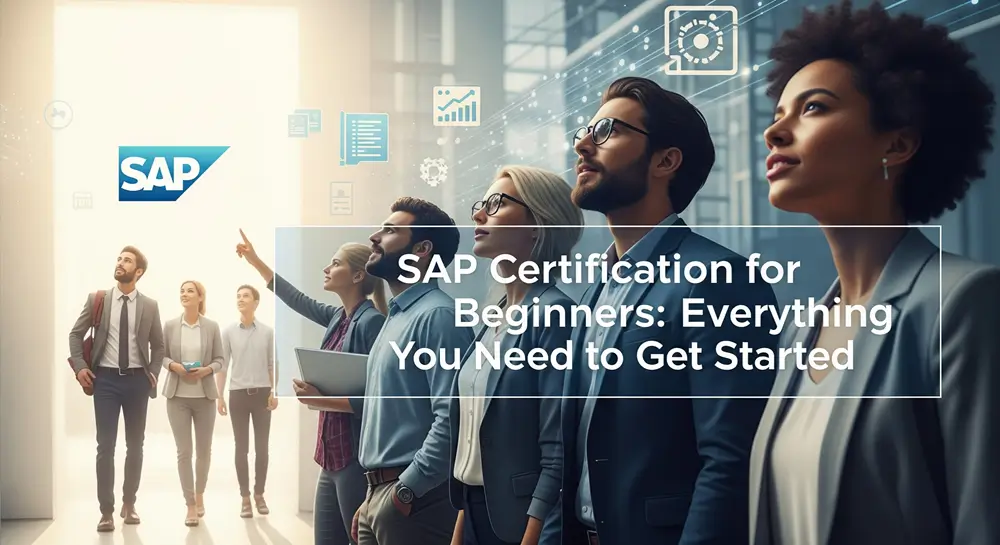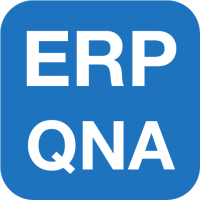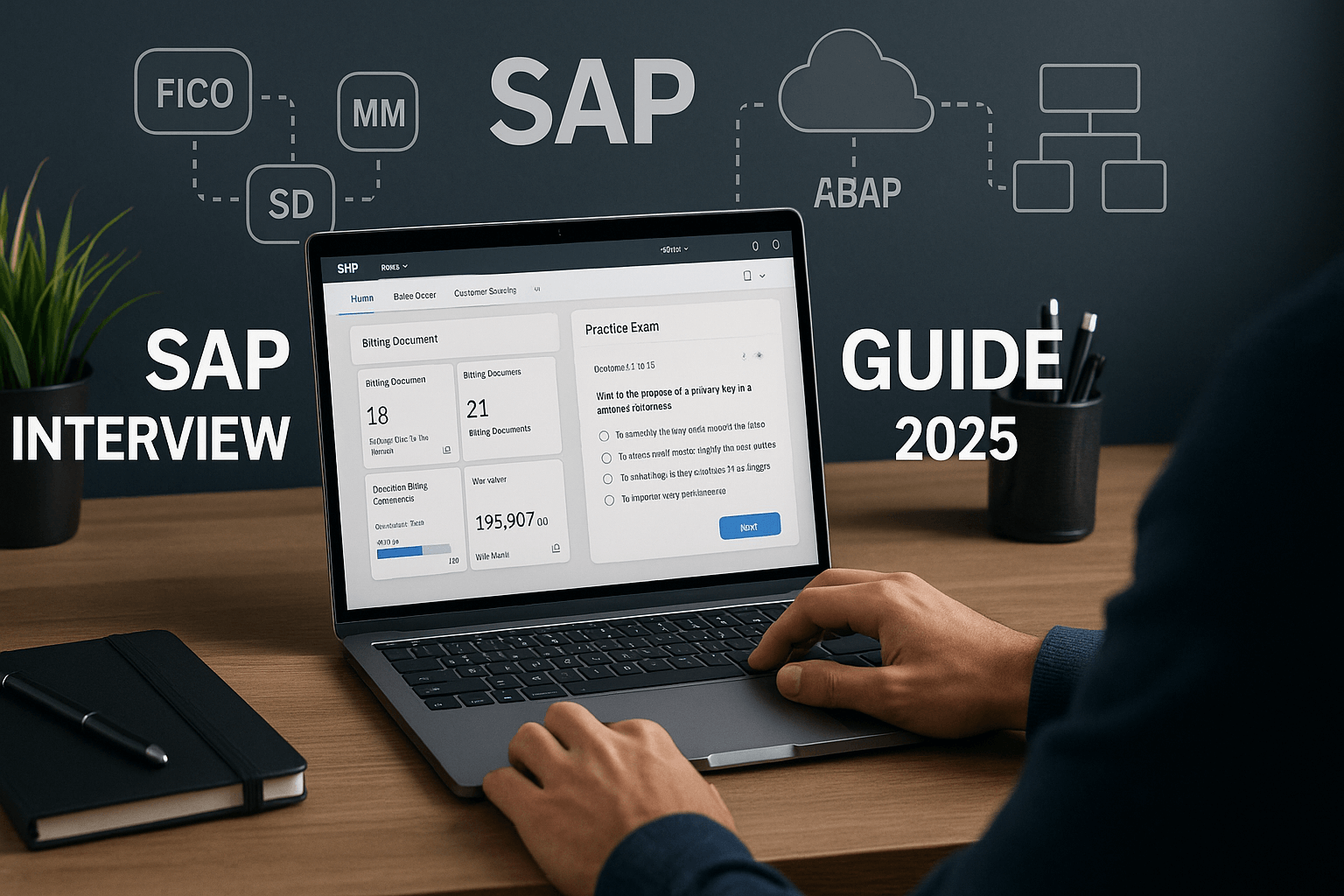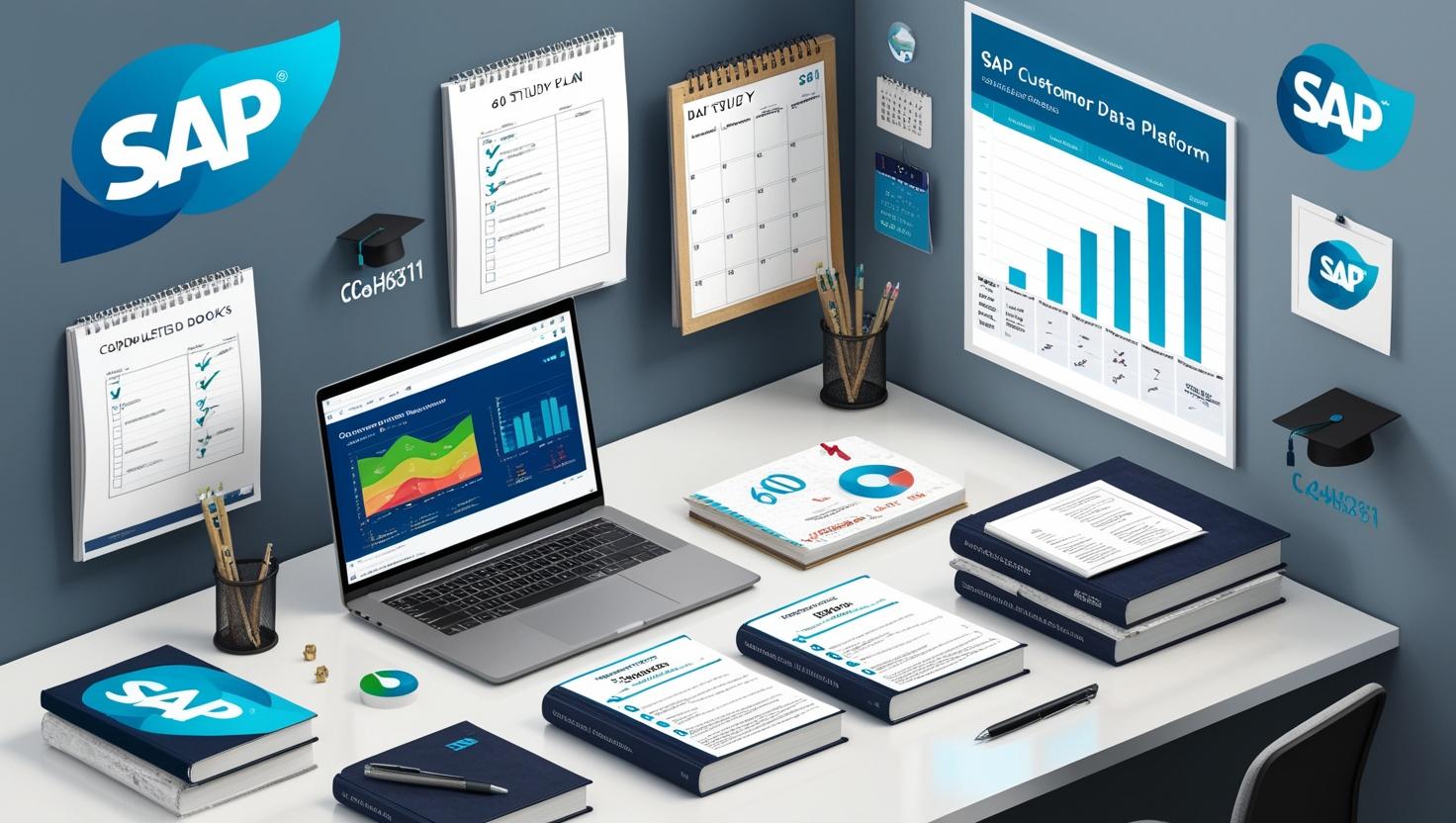SAP Certification for Beginners: Everything You Need to Get Started

Strong 8k brings an ultra-HD IPTV experience to your living room and your pocket.
Embarking on a new career path can feel like standing at the base of a massive mountain. You see the peak—a rewarding, stable, and high-growth career—but the trail isn't always clear. For many aspiring tech professionals, that mountain is SAP, and the most reliable path to the top is achieving an SAP Certification.
If you're here, you likely have questions buzzing in your mind: Is it the right move for me? Where do I even begin? What does it cost? The sheer volume of information can be overwhelming, but you've come to the right place. We understand the mix of ambition and anxiety you're feeling, and this guide is designed to be your trusted companion.
This isn't just another article. It's a comprehensive, confidence-boosting roadmap created to turn your aspiration into achievement. We will walk you through every step of the SAP Certification journey, from choosing your first module to acing the exam and leveraging your new credentials. Think of this as your personal mentor, here to demystify the process and equip you for success.
What is SAP Certification and Why Does It Matter?
Let's start with the fundamentals. SAP (Systems, Applications, and Products in Data Processing) is a global leader in enterprise resource planning (ERP) software. Millions of businesses worldwide, including 99 of the 100 largest companies, rely on SAP solutions to manage their operations and data. An SAP Certification is a credential issued directly by SAP that validates your expertise in a specific SAP module or solution.
The Real-World Value: Is an SAP Certification Worth It in 2025?
Absolutely. In a competitive job market, an SAP Certification is more than just a piece of paper; it's a powerful differentiator. Here’s why it's a game-changing investment in your career:
- Industry Recognition & Credibility: It is the highest form of endorsement you can receive, globally recognized and respected by employers. It proves you have the skills to do the job.
- Enhanced Job Prospects: Many job descriptions for SAP consultants, analysts, and developers list SAP Certification as a mandatory or highly preferred qualification. It gets your resume noticed.
- Higher Earning Potential: Certified professionals often command higher salaries than their non-certified peers. It's a direct investment in your long-term financial growth.
- Validated Expertise: It demonstrates a commitment to your profession and a deep understanding of SAP's best practices, giving you the confidence to tackle real-world challenges.
- Career Advancement: For those already in the industry, certification can be the key to a promotion, a transition into a more specialized role, or the catalyst for leading major projects.
Which SAP Certification is Right for You? A Beginner's Guide
The SAP ecosystem is vast, with solutions covering everything from finance to logistics to human resources. Choosing the right certification is the most critical first step.
Understanding Certification Levels
SAP structures its certifications in a clear hierarchy:
- Associate Certification: This is the ideal starting point for beginners. It confirms you have the fundamental knowledge and skills required for an SAP consultant profile. Our guide focuses primarily on achieving this level.
- Specialist Certification: This builds on the Associate level, focusing on a specific component or role within a broader solution.
- Professional Certification: This is the most advanced level, requiring proven project experience and a deep, multi-faceted understanding of SAP solutions.
Popular SAP Modules & Certifications for Beginners
While there are many options, beginners often find success by starting with a foundational module that is in high demand. Here's a SAP Certification list of popular areas, with a focus on the modern SAP S/4HANA suite:
- SAP S/4HANA Cloud, public edition - Finance (FI): Ideal for those with a background in accounting or finance.
- SAP S/4HANA Sourcing and Procurement (MM): Perfect for individuals interested in supply chain management and inventory.
- SAP S/4HANA Sales (SD): A great fit for those with a background in sales, order management, and billing.
- SAP SuccessFactors Employee Central (HCM): The go-to for professionals passionate about Human Capital Management.
- SAP Activate Project Manager: Excellent for those with project management skills who want to lead SAP implementation projects.
Expert Tip: Don't just pick a module because it's popular. Align your choice with your existing skills, education, and career interests. If you have a finance degree, the FI path is a natural fit. If you're a logistics expert, look into MM or SD. This alignment will make your SAP Certification preparation more intuitive and your career more fulfilling.
Your Step-by-Step Guide to Getting SAP Certified
Feeling motivated? Great. Let's break down the journey into five manageable steps.
Step 1: Choose Your Specific Certification Path
Once you've selected a module (e.g., Finance), you need to pinpoint the exact exam. Go to the official SAP Learning portal. You can search by solution (e.g., "S/4HANA Finance") to see the available certifications.
For our guide, let's use a popular beginner exam as a concrete example: C_S4CFI_2504 - SAP Certified Associate - Implementation Consultant - SAP S/4HANA Cloud Public Edition, Financial Accounting.
Step 2: Master the Syllabus - A Deep Dive into the Exam
Every SAP Certification exam has a detailed syllabus or "Topic Area" breakdown on its official page. This is your roadmap for what to study. Do not skip this!
For our example exam, C_S4CFI_2504, the topic areas and their approximate weightings are:
- System Landscapes and Identity Access Management (
- Configuration and the SAP Fiori Launchpad (
- Implementing with a Cloud Mindset, Building the Team, and Conducting Fit-to-Standard Workshops (
- Introduction to Cloud Computing and SAP Cloud ERP Deployment Options (
- Extensibility and Integration (
- Data Migration and Business Process Testing (
- Asset Accounting (11-20%)
- Payables Management (
- Receivables Management (11-20%)
- Record-to-Report (11-20%)
Understanding these percentages tells you where to focus the bulk of your study time.
Step 3: Your SAP Certification Preparation Strategy
Success doesn't come from just reading books; it comes from a structured and active preparation strategy.
- The Official Source - SAP Learning Hub: SAP itself provides the most authoritative training materials. A subscription to the SAP Learning Hub gives you access to e-learning courses, live sessions, and handbooks directly aligned with the exam syllabus. While it has a cost, it's the most reliable path.
- The Power of Practice: Answering SAP Certification exam questions is a skill. You need to get used to the format and phrasing. Invest in a good SAP Certification practice test. Don't just take the test to see your score; use it as a diagnostic tool. For every question you get wrong, go back to the study material and understand why you got it wrong.
- Create a Realistic Study Plan: Look at the exam topics and the number of weeks you have. Allocate specific days and hours for studying, and stick to it. A typical plan might be 1-2 hours per day for 8-12 weeks.
- Common Pitfalls to Avoid:
- Relying on Dumps: Using unverified "dumps" of SAP Certification questions and answers is a recipe for failure. They are often outdated, incorrect, and violate SAP's policies.
- Memorizing, Not Understanding: The exam tests your ability to apply knowledge, not just recall facts. Focus on understanding the business processes behind the configuration.
- Ignoring Low-Weightage Topics: While you should focus on high-weightage areas, ignoring smaller topics can be the difference between passing and failing. Cover the entire syllabus.
For more in-depth learning resources, check out these excellent SAP Tutorials.
Step 4: Understanding the SAP Certification Cost
So, how much does an SAP Certification cost? The primary cost is the exam attempt itself. SAP offers a subscription model called CER006 - SAP Certification - 6 Attempts.
- What it is: This package gives you six exam attempts over a 12-month period. You can use them to take six different exams or to retake a single exam up to three times.
- Estimated Cost: The price varies slightly by country but is generally around $550 - $750 USD. Always check the official SAP Training shop for the most current price in your region.
- Additional Costs: Remember to budget for training materials, like a subscription to the SAP Learning Hub or official e-learning courses.
Step 5: Registering for and Taking the SAP Certification Exam
Once you're consistently scoring well on your SAP Certification practice test and feel confident, it's time to register.
- Purchase the Subscription: Buy the CER006 package from the SAP Training website.
- Schedule Your Exam: Once purchased, you'll get access to the Certification Hub. Here, you can schedule your exam. You can choose a date and time that works for you.
- Online Proctored Exam: Most SAP Certification exams are now taken online with a live proctor. You'll need a quiet room, a stable internet connection, and a computer with a webcam. Follow all the system check requirements provided by SAP well in advance of your exam time.
What to Expect on Exam Day
The moment of truth has arrived. Knowing the exam format will significantly reduce your anxiety.
Deconstructing the SAP Certification Exam Questions
- Number of Questions: 80 questions.
- Duration: 180 minutes.
- Question Types:
- Single Answer: Standard multiple-choice where only one option is correct.
- Multiple Answer: The question will state how many answers are correct (e.g., "There are 2 correct answers"). You must select all correct answers to get the point; there is no partial credit.
Exam Tip: Read every question carefully. The questions are designed to be tricky. Pay close attention to words like "NOT," "ALWAYS," or "MUST." Answer the questions you are sure about first, flag the difficult ones, and come back to them later.
The Passing Score: What You Need to Achieve
The passing score for most Associate-level exams is typically between 60% and 70%. The exact percentage will be listed on the official exam page on the SAP Learning portal. For our example, C_S4CFI_2504, the cutoff is 65%.
You're Certified! What's Next?
Passing the exam is a monumental achievement, but it's the beginning of a new chapter, not the end of the book.
- Update Your Profiles: Immediately add your new credential to your LinkedIn profile, resume, and any professional portfolios. SAP uses Acclaim by Credly to issue digital badges, which are easily shareable and verifiable.
- Continuous Learning: The world of SAP is constantly evolving. Your certification is valid for the specific version you tested on. Stay current by reading SAP blogs, following experts, and planning for future "stay-current" or delta exams if required.
- Network and Grow: Join SAP-focused groups on LinkedIn, attend webinars, and connect with other professionals. Your certification is a key that opens doors; now it's time to walk through them. For more career guidance, explore our Certification Career Path Articles.
FAQs
We've compiled answers to the most common queries we receive.
Q: How do I get a PDF guide for SAP Certification preparation?
A: The best "guides" are the official course handbooks (e.g., S4F01, S4F02) available through the SAP Learning Hub. Avoid unofficial PDFs, as they are often outdated.
Q: What's the best way to practice for the SAP Certification Exam?
A: The most effective method is a combination of studying the official SAP e-learning materials and taking a reputable SAP Certification practice test. Analyze your wrong answers to identify knowledge gaps.
Q: What is the eligibility criteria for the SAP Certification?
A: For Associate-level certifications, there are generally no strict prerequisites. Anyone can register and take the exam. However, practical experience or foundational knowledge in the relevant domain (like finance or logistics) is highly recommended.
Q: How long is my SAP certification valid?
A: Your certification is tied to a specific software version (e.g., S/4HANA 2022). While it doesn't "expire," you may need to take delta exams or complete stay-current enablement courses to keep your skills relevant for newer cloud releases.
Q: Can I take the SAP exam online from home?
A: Yes, the vast majority of SAP Certification exams are offered online through the Certification Hub with live proctoring, allowing you to take them from the comfort of your home or office.
Conclusion: Your Future is Certified
The journey to your first SAP Certification is a marathon, not a sprint. It requires dedication, focus, and a strategic approach. But by investing in yourself, you are building a foundation for a career that is not only financially rewarding but also intellectually stimulating and globally in demand.
You've already taken the most important step: seeking out the right information. Use this guide as your blueprint. Choose your path, commit to a study plan, and walk into your exam with the confidence that you are fully prepared. The feeling of seeing "Pass" on your screen is a reward in itself, opening a door to a world of opportunity. Your future in the dynamic world of SAP awaits.
Note: IndiBlogHub features both user-submitted and editorial content. We do not verify third-party contributions. Read our Disclaimer and Privacy Policyfor details.







